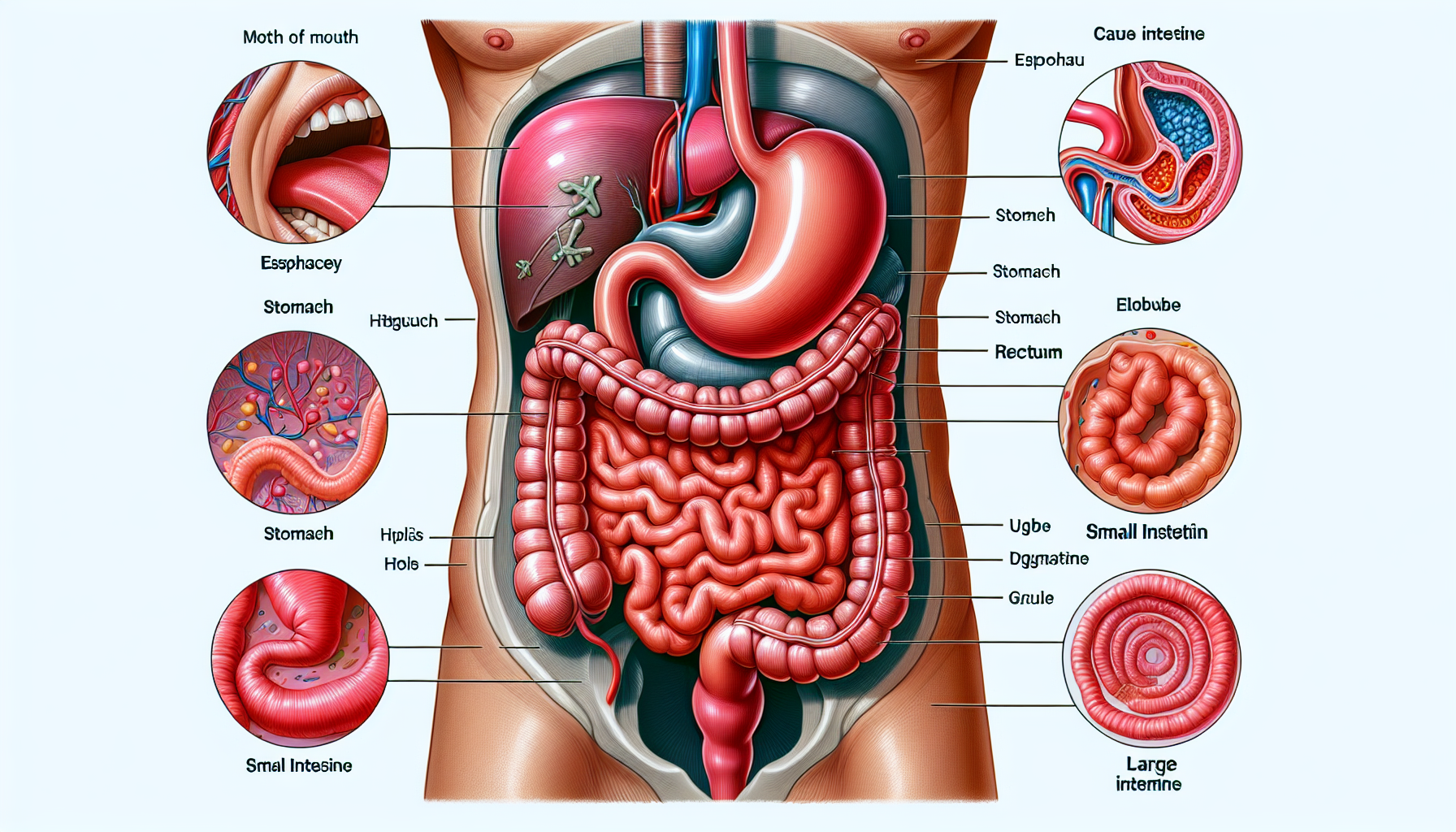Digestive disorders can significantly impact one’s quality of life, often leading to discomfort, pain, and a wide range of symptoms that make everyday activities challenging. One of the less immediately obvious yet critically important consequences of digestive disorders is nutrient deficiency. A well-functioning digestive system is crucial for the absorption of nutrients necessary for the body’s overall health and well-being. This article explores the intersection between digestive health and nutrient absorption, offering guidance on how to address and manage these deficiencies effectively.
The Importance of Digestive Health for Nutrient Absorption
Digestive health is foundational to the proper assimilation of vitamins and minerals from our diet. Conditions such as Crohn’s disease, celiac disease, and irritable bowel syndrome (IBS), among others, can severely disrupt this process. For instance, inflammatory bowel diseases can damage the intestinal lining, while conditions like gastritis or low stomach acid can interfere with the initial breakdown of food, which is essential for nutrient extraction.
To understand how these disorders affect nutrient absorption, it is beneficial to visit our comprehensive guide on Digestive Health, which delves into the complexities of the digestive system and provides insights into maintaining its optimal function.
Identifying Nutrient Deficiencies
Recognizing the signs of nutrient deficiencies can be the first step towards addressing them. Symptoms may include fatigue, weakness, irregular heart rhythms, bone pain, or cognitive difficulties, which may signal deficiencies in vitamins such as B12, D, or minerals like magnesium and calcium.
For a closer look at how specific deficiencies impact various aspects of health, one might consider reading about the influence of nutrition on Bone Health, which is often affected by digestive disorders due to impaired calcium absorption.
Strategies to Combat Nutrient Deficiencies in Digestive Disorders
Dietary Adjustments
Making informed dietary changes is crucial. Incorporating nutrient-dense foods that are easy to digest can help alleviate the strain on the digestive system. For those with conditions like celiac disease, a gluten-free diet is not just a lifestyle choice but a necessity for preventing further damage to the intestinal lining.
Supplemental Support
In cases where dietary changes aren’t enough, supplements can play a vital role. However, it’s essential to approach supplementation with care, as some can irritate the digestive tract or interact with medications. Consulting with healthcare providers is key to creating a tailored supplement plan.
To learn more about safely integrating supplements into your health regimen, consider the insights provided on Medication & Supplements.
Holistic Approaches
Holistic therapies, such as mindfulness meditation, have shown promise in managing symptoms of digestive disorders and improving overall well-being. The benefits of such practices are explored in detail in the article "The Benefits of Mindfulness Meditation for Digestive Health."
Medical Interventions
For those with severe nutrient malabsorption, medical interventions like vitamin injections or intravenous nutrition may be necessary. These treatments bypass the digestive system, ensuring that the body receives the nutrients it needs.
External Resources for Further Information
To expand on the relationship between the digestive system and nutrient absorption, readers might find the following external resources invaluable:
- A niche resource on the implications of micronutrient deficiencies in gastrointestinal diseases can be found at the Micronutrient Information Center.
- Research on the role of the gut microbiome in nutrient absorption is available through the American Society for Microbiology.
- A detailed guide on managing specific nutrient deficiencies caused by digestive disorders is provided by Gastroenterology Associates.
Addressing Specific Nutrient Deficiencies
Vitamin B12
Vitamin B12 deficiency is commonly seen in conditions like atrophic gastritis or after gastric bypass surgery, which affects the stomach’s ability to produce intrinsic factor, a protein crucial for B12 absorption. Symptoms may include anemia, neuropathy, and cognitive changes.
Iron
Iron deficiency anemia is another common issue, particularly in those with inflammatory bowel disease or celiac disease. It can lead to fatigue, shortness of breath, and pale skin.
Calcium and Vitamin D
These nutrients are vital for bone health, and their malabsorption can lead to osteoporosis. Conditions like celiac disease can decrease their absorption, as detailed in "The Role of Sleep in Digestive System Repair," which underscores the importance of adequate rest in the healing and maintenance of the digestive system.
The Role of Healthcare Professionals
Managing nutrient deficiencies in digestive disorders is a complex task that requires the expertise of healthcare professionals. Dietitians, gastroenterologists, and primary care physicians can work together to create a comprehensive plan that addresses both the underlying digestive issues and the resulting nutrient deficiencies.
The Path Forward
It’s crucial to understand that while managing nutrient deficiencies is vital, it’s also important to address the root cause of the digestive disorder. This may involve a combination of dietary changes, lifestyle adjustments, medication, and potentially surgery, depending on the severity and type of condition.
In conclusion, addressing nutrient deficiencies in digestive disorders requires a multifaceted approach that includes dietary adjustments, appropriate supplementation, medical interventions, and ongoing monitoring by healthcare professionals. By taking proactive steps to manage these deficiencies, individuals with digestive disorders can improve their quality of life and ensure their bodies receive the necessary nutrients for optimal health.



